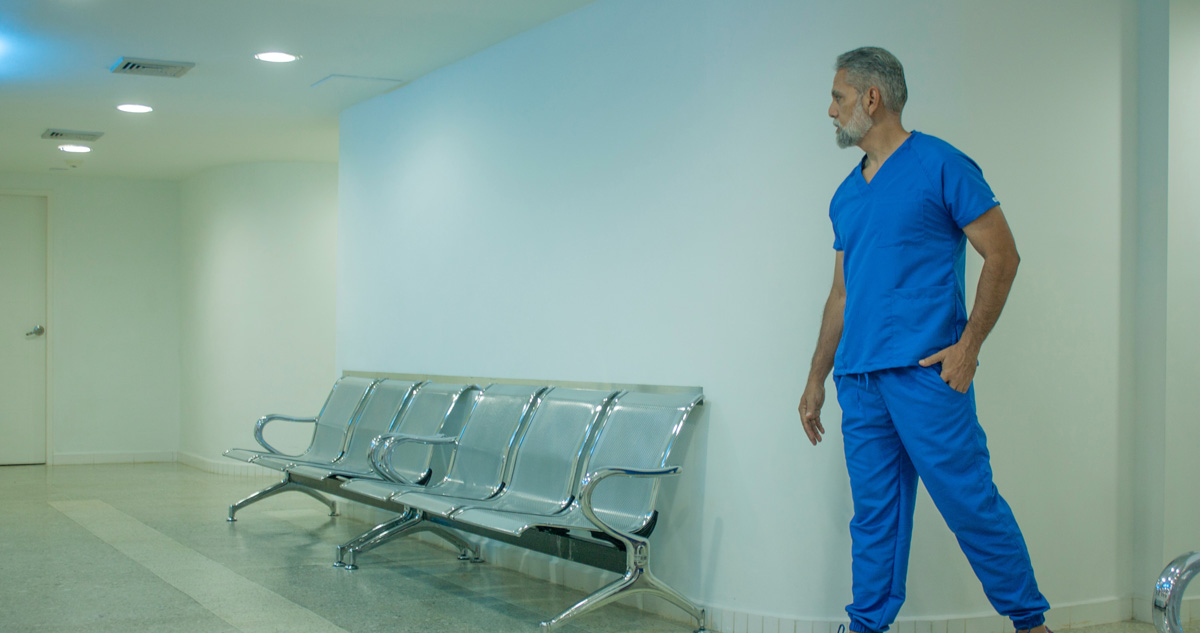
Many people who show support for health care workers with nightly noise-making also avoid health care workers throughout the day.

Dr. Steven Taylor
New UBC research reveals fears that have arisen among the general public about coming into contact with health care workers during the COVID-19 pandemic. One in four people surveyed went so far as to agree that the freedoms of health care workers should be restricted.
The study is believed to be the first on stigmatization of health care workers during the COVID-19 pandemic.
“Being around health care workers is not dangerous,” said Steven Taylor, a professor of psychiatry in UBC’s faculty of medicine and lead author of the study published today in the Journal of Anxiety Disorders. “People need to look at the facts and understand that we don’t need to add to the stress that health care workers are already experiencing. If we create burdens on our healthcare workers, it’s going to undermine their ability to perform their jobs properly.”
Nearly one-third believe healthcare workers ‘likely’ to have COVID-19
The research team surveyed a random sample of 3,551 people in Canada and the U.S. between May 6 and 19 to see if they would discriminate against health care workers based on fears they could carry the virus that causes COVID-19.
One in three respondents agreed or strongly agreed with the statement: “I do not want to be around someone who works in a healthcare setting.”
| Statetment | % in agreement |
|---|---|
| Healthcare workers who work in hospitals are likely to have COVID-19 | 32 |
| For the safety of the community, healthcare workers should not go out in public. | 25 |
| I do not want to be around someone who works in a healthcare setting. | 33 |
| Healthcare workers who treat people with COVID-19 should be separated from their families | 31 |
Those who cheer provided similar answers
The researchers also asked respondents how often they participated in nightly shows of support for health care workers. Clapping, cheering and banging pots didn’t make a person any less likely to stigmatize health care workers.
“What struck me the most was this combination of people getting out there and applauding from the safety of their balconies, but also having some very strong and mistaken beliefs about the dangers that health care workers pose,” Taylor said.
Actual risk is very low
Previous research has shown that COVID-19 is only slightly more prevalent among health care workers than it is among the general population: 0.14 per cent compared to 0.10 per cent. Experts believe much of this difference can be attributed to more testing among health care workers.
Data from this study showed that stigmatization was closely related to COVID-19 stress syndrome, which had been identified by Taylor in earlier research and is characterized by:
- fears that COVID-19 is highly dangerous;
- a tendency to view foreigners as sources of infection;
- avoidance of public places like supermarkets where encounters with other people are likely.
“When people become threatened by infection, they do develop phobias and become worried about coming into contact with certain groups of people,” Taylor said. “In a sense, the fear of health care workers is not so different from the bigger problem of pandemic-related racism. They are all inter-linked.”
Public must learn the facts
While the COVID-19 pandemic does carry risks for health care workers, the risk of contracting the virus is not high among them. Workplace stress is a much bigger problem, and stigmatization only compounds that mental health risk.
The researchers call for clear, sensible public education campaigns to help people understand that healthcare workers pose little risk to the public.